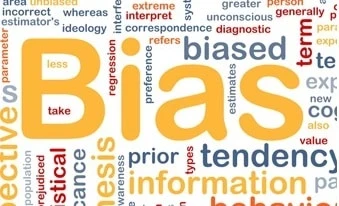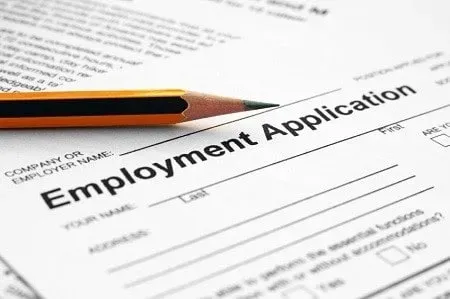Involuntary Hiring Biases

Involuntary Hiring Biases
Even in today’s cultivated society, hiring biases are everywhere. Women make up only 2.6 percent of the construction industry, says the National Women’s Law Center. This number has barely changed over the last 30 years. In addition to gender discrimination, Age discrimination is a problem in the engineering and tech industries; loaded job offers that call for “new grads” ensure this.
To make things worse, studies show that many hiring biases may be unintentional or superficially benevolent. This is no excuse, however; the legendary author C.S. Lewis put it best when he said that “tyranny exercised for the good of its victims may be the most oppressive.” From gender and ethnic discrimination to the lesser-known “affinity bias”, here are three of the most prominent involuntary hiring biases in the workplace.
People are drawn to people like themselves. It’s a fact of life. This can manifest in a ton of ways. Say, for instance, a manager who roots for Chicago sports teams finds out that his interviewee is a fan of the Bulls. “Well, that’s great,” thinks the manager. “They’ve got good taste!” The manager takes a liking to the interviewee, and will likely unconsciously form positive opinions about the candidate throughout the interview and may even aid them with trickier questions.
On the other hand, imagine the same manager interviewing a candidate with a haircut he doesn’t like. Right off the bat, the manager makes silent judgment calls that even he doesn’t notice. The interview goes poorly in the manager’s eyes; in his mind, the candidate shouldn’t have even shown up.
This is the “affinity bias”. People work with those they like, and reject those they don’t like; it’s a fact of living. In the business world, however, this is completely unacceptable. Imagine a construction company where the majority of the employees had the same experiences, lifestyle, likes and dislikes as the manager. That company will stagnate almost instantly.
The second most dangerous hiring bias is the age-old albatross known as discrimination. For instance, it’s commonly thought that men are better at math than women, and Indians are better at math than most other ethnic groups. Naturally, the best mathematicians and engineers are Indian males, right? Readers will note that this thinking is patently ridiculous. It is also, sadly, common.
Rounding out the three most prominent involuntary hiring biases is simple self-preservation. Managers naturally fear losing their jobs and thus get wary of hiring anyone who could threaten their position. A particularly competent candidate could do a great job, sure, but where would that leave the manager? So the manager decides to look for someone slightly less qualified.
To combat these biases companies have adopted practices much like the “blind auditions”. Here, the candidate interviews with a number of interviewers from behind a screen so that those hiring do not know who they are interviewing. This has resulted in more people getting accepted for roles that may have been disregarded due to an “affinity bias” This could go a long way towards solidifying diversity in the business world.
Michael DeSafey is a leading executive recruiter for professionals in the construction, engineering and environmental industries. He is currently the President of Webuild Staffing www.webuildstaffing.com . To learn more about Michael or to follow his Blog please visit www.michaeldesafey.com
How To Find And Hire The Best Employees For Your Business.

How To Find And Hire The Best Employees For Your Business.
Whether you’re a business owner, chief executive, project manager or HR Manager; you know lot a time goes into finding the right employees for your organization. The success of every business depends on the abilities of its staff and their ability to work as a team to achieve success.
One of the biggest questions many hiring managers have is: How do you find the best talent in the marketplace and how do you know which people to hire?
Do you place job advertisements? Scour through resume stacks? Interview as many people as you can? Retain recruiters? Well, the simple answer is Yes; but to hire the best talent in the industry you need to know who is working in your industry and you need to have an existing relationship with them.
Anyone can place a job advertisement and look through resume after resume until you interview and hire a candidate that best matches your requirements at that time. As a manager, though you need to build a long term outlook into your recruitment strategy. Look at your projects and/or corporate needs 1 year in advance. Determine what roles and skills your organization may potentially need and keep your eyes open for individuals with those skills. Even if you cannot hire then currently.
Simply posting job advertisements when you need to hire for a job opening will never allow you to find exceptional talent. Your job advertisement only targets individuals looking for a job at a specific point in time. Your organization always needs to be looking for high quality talent. Holding open houses, career fairs, talking with other professionals and leaders in the industry, showcasing your organization to the public.
As a manager though, you need to remember the highest quality and best talent in your industry will never actively be looking for a job. They already have one!! An employer searched them out, courted and hired them. You now need to do the same!! You need to find out who these individuals are, build relationships with them and hire them when the time is right.
You will want to attend professional association networking events, go to lunch with your competitors, talk to your clients about who they know and have experience working with, and/or search LinkedIn and other social media outlets for individuals with specific expertise and connect with them. Establishing relationships and simply take some time to get to know people, their careers, what projects they are working on, what motivates them, and where they see their career going, etc. will allow you as a manager when the time is right to select and make the right strategic hire quickly and efficiently.
But they may not be looking for a job?? Wrong!! You will be surprised how open people are about learning about a new career opportunity when approached. 90% of the currently employed workers will never turn down a potential new opportunity. Everyone is always looking for something better!! By having an existing relationship with them, the courting process is much more efficient, effective and beneficial to the organization doing the hiring.
You already know what makes the candidate tick, what they enjoy, where their expertise is, the type of personality they have, etc.. The relationship is already established all you need to do now is reel them in and make sure the position you have matches their desires, salary and career advancement needs.
Managers that are always building relationships and keeping their eyes open for exceptional talent in the course of their daily business activities will never find themselves lacking exceptional talent for a growing organization. Their businesses will be thriving, while others are still posting job ads and interviewing candidates.
Michael DeSafey is a leading executive recruiter for professionals in the construction, engineering and environmental industries. He is currently the President of Webuild Staffing (www.webuildstaffing.com ). To learn more about Michael or Follow his Blog please visit www.michaeldesafey.com
Mistakes Hiring Managers Make!! How To Avoid Them…

Mistakes Hiring Managers Make!! How To Avoid Them…
As a professional recruiter who has been working and recruiting professionals in the environmental, engineering and construction industries for over 18 years now at Webuild STaffing, I have noticed that candidates feel Job interviews can be an intimidating experience, even for the most experienced candidates; But hiring managers are under the same amount of pressure..
A candidates nerves may get the best of them. But you need to remember that, you as the interviewer are under the same amount of pressure. Employers need experienced candidates and the managers that are doing the interviewing suffer the same insecurities.
The hiring manager is under a great amount of pressure to hire the right candidate. His or her decision directly reflects their abilities to run an organization and a bad hire will greatly impact their reputation within the organization. Candidates on the other hand can simply, continue interviewing and find the right opportunity for your specific skills and situation. If a hiring manager makes a mistake and hires the wrong person the effect could be career ending.
If you are hiring your first or 1000th employee there are a number of basic steps every manager should follow to avoid making a mistake and hiring the wrong employee.
1. The Resume
The resume introduces a candidate’s experience and career history to you. It is a necessary document that allows a candidate to introduce themselves to you as an employer. Do not rely simply on the resume to understand a candidate’s skills, experience and accomplishments.
Use the resume as a guide to learn about the candidate. Talking with them on the phone or an in person interview allows you as an employer to gain a full understanding of the individual. Ask questions; learn about a candidate’s strengths, weaknesses, accomplishments in detail. Have them explain what they did, how they accomplished tasks, worked with others, etc. You can challenge candidates and see how they respond to questions under pressure, as well.
2. Always Check A Candidates References..
One of the most critical mistakes a hiring manager can make is to fail to check candidate’s references. This is of prime importance before hiring any candidate; gaining a outside view point from another as to a candidates experience, skills and reliability will give you as a hiring manager a rounded picture of the candidate; from someone who has worked with them in the past.
References should always be from past employers, candidate’s superiors or business associates that has direct experience working with the individual. On average you should check a minimum of 3 references for each candidate. Additionally, many industries are well connected and a hiring manager may want to check with colleagues or friends from other organizations that they may have in common with the candidate for an additional perspective.
3. Do you Know What Position You Are Hiring For??
A hiring manager needs to know specifically what position they are interviewing for and have a clear understanding of the skills they are seeking. Many times hiring manager’s interview candidates before they even know what skills they are seeking. This leaves a candidate confused as to the position advertised and the interview process within the organization. A candidate may be exceptionally skilled for the position that was advertised, but then finds out in the interview the employer is not sure what they are seeking for the position. This leaves a candidate with an ill faded view of the company and wastes precious time for both the interviewer and candidate.
You, as a hiring manager must fully understand your needs, the position responsibilities, skills required and be able to fully explain the position to a candidate during the interview process. Providing a candidate with as much information as possible will go a long way in making sure you hire the correct individual for the opportunity and assure their expectations are in line with the company goals.
4. Skills Testing?? What’s That…
What’s a skills test? Many employers are asking that same question, but human resource professionals have been using them for years in assessing a candidates skills and the potential fit within a corporate culture.
Utilizing testing for skills assessment can be as simple as a typing test to as complex as an engineering design; that will allow you assess candidates abilities in specific areas that they will be required to accomplish in their daily routines. Employers can additionally expand on the skills testing and incorporate in corporate culture testing to see how a candidate may fit into the overall corporate culture, based on their personally traits, matched against all the other employees of the firm.
With advances of internet technology and cloud based software; these testing processes are now much more affordable and easily accessible by any employer seeking to utilize them as a tool within the scope of overall hiring.
If a hiring manager practices the above tips and assure they check the details when they hire an new employee, your next hire will be a great success.
Michael DeSafey is a leading executive recruiter for professionals in the construction, engineering and environmental industries. He is currently the President of Webuild Staffing (www.webuildstaffing.com). To learn more about Michael or Follow his Blog please visit www.michaeldesafey.com
